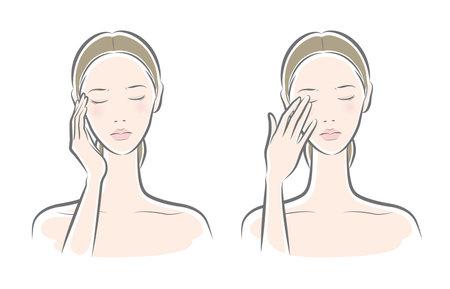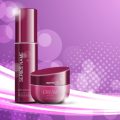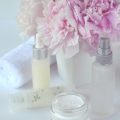1. Understanding Hard Water in the UK
When it comes to skincare, many Britons overlook a crucial factor: the quality of their tap water. Hard water is a common feature across much of the UK, and it can significantly impact the health and appearance of your skin. But what exactly is hard water? Put simply, hard water is water that contains high levels of dissolved minerals—primarily calcium and magnesium ions. This mineral-rich composition results from rainwater percolating through limestone and chalk before reaching our taps, a geological trait particularly prevalent in regions such as London, the South East, and East Anglia.
The distinction between hard and soft water lies chiefly in their mineral content. While soft water has low concentrations of these minerals, hard water can leave residue on surfaces and, more importantly, on your skin. The table below provides a quick comparison:
| Hard Water | Soft Water | |
|---|---|---|
| Mineral Content | High (mainly calcium & magnesium) | Low |
| Common Regions in the UK | London, South East, East Anglia | Scotland, North West, Wales |
| Effect on Skin | Can cause dryness & irritation | Milder on skin |
This prevalence of hard water in UK households means that millions are unwittingly exposing their skin to higher mineral loads with every wash—setting the stage for unique challenges when it comes to choosing effective cleansers and maintaining healthy skin.
2. How Hard Water Impacts Your Skin
Hard water is a common concern across the UK, with many households experiencing its effects daily. The primary culprits behind hard water are high levels of minerals, particularly calcium and magnesium. While these minerals arent harmful to drink, their presence can significantly impact your skin health, especially with regular exposure through bathing and cleansing routines.
The Science Behind Hard Water and Skin Problems
When hard water comes into contact with your skin, the minerals in it react with soaps and cleansers, leading to the formation of an insoluble residue. This residue can linger on your skin even after rinsing, making it harder for moisture to penetrate and be retained by the skin barrier. As a result, you may notice your skin feeling tight, dry, or even itchy after washing.
Common Skin Issues Caused by Hard Water
| Skin Issue | Description | How Hard Water Contributes |
|---|---|---|
| Dryness | Skin feels rough, flaky, or dehydrated | Mineral deposits block moisture absorption and strip natural oils |
| Irritation | Sensations of itchiness, redness, or discomfort | The residue left behind acts as an irritant, especially on sensitive skin |
| Eczema Exacerbation | Flare-ups or worsening of pre-existing eczema symptoms | Hard water aggravates the compromised skin barrier associated with eczema, leading to more frequent or severe episodes |
Who Is Most at Risk?
People with sensitive skin types or existing conditions such as eczema or psoriasis are particularly vulnerable to the adverse effects of hard water. Even those without prior issues may develop symptoms over time due to continuous exposure. Children and older adults—whose skin barriers are naturally weaker—may also be disproportionately affected.
![]()
3. Recognising the Signs of Hard Water Damage
If you’re living in the UK, chances are your tap water is on the harder side. But how can you tell if hard water is actually affecting your skin? Understanding these signs is essential before choosing the right cleanser, as hard water-related issues often mimic other common skin problems. Below, we break down the most common indicators and explain how to distinguish them from unrelated skin conditions.
Visible and Sensory Signs of Hard Water Exposure
| Sign | What You’ll Notice | How It Differs from Other Issues |
|---|---|---|
| Dryness & Flakiness | Your skin feels tight after washing and may appear dull or flaky, especially on the cheeks and forehead. | Unlike eczema or psoriasis, dryness from hard water tends to improve with bottled or filtered water use. |
| Itchiness | An ongoing, mild itch—particularly after a shower or bath. | Hard water itch is usually more widespread than an allergic reaction, which presents in patches. |
| Sensitivity & Redness | Red patches or increased sensitivity, particularly where water lingers (face, neck, arms). | This redness often fades if you switch to softer water; rosacea will persist regardless of water type. |
| Breakouts & Congestion | Small bumps or acne-like eruptions, especially in areas that come into contact with towel-dried hairline or jaw. | Hard water breakouts are less inflamed than hormonal acne and typically clear with consistent use of a gentle cleanser. |
How to Tell If Hard Water Is to Blame
- You notice limescale build-up around taps or shower heads—a classic sign of hard water in your area.
- Your usual skincare routine suddenly stops working as effectively after moving house or changing your water supply.
- Your symptoms worsen in winter when heating systems increase evaporation and mineral concentration in household water.
The Importance of Correct Identification
Mistaking hard water effects for chronic skin conditions can lead to overuse of harsh treatments and unnecessary expenses. If switching to filtered or bottled water improves your symptoms within a week, it’s likely that hard water is the culprit. Otherwise, consult a dermatologist for further assessment.
4. What to Look for in a Cleanser
When choosing a cleanser to counteract the effects of hard water on your skin, it’s crucial to focus on formulations and ingredients that specifically address mineral build-up, dryness, and irritation. Here are the key aspects to consider:
Gentle Surfactants
Harsh surfactants can strip your skin’s natural oils, which is especially problematic when hard water already exacerbates dryness. Instead, opt for cleansers with mild surfactants such as coco-glucoside or decyl glucoside—these ingredients cleanse effectively without causing irritation or tightness.
pH-Balancing Formulas
The minerals in hard water can disrupt your skin’s natural pH balance, leading to sensitivity and breakouts. A cleanser formulated to restore and maintain an optimal skin pH (typically around 5.5) will help preserve your protective barrier. Look for products that explicitly state they are pH-balanced or “soap-free.”
Moisturising Components
Hydration is essential in combatting the drying effects of hard water. Ingredients like glycerin, hyaluronic acid, and ceramides provide lasting moisture and help reinforce the skin’s lipid barrier. Below is a comparison of common moisturising components found in cleansers:
| Ingredient | Benefit | Skin Type Suitability |
|---|---|---|
| Glycerin | Draws moisture from the air into the skin | All skin types, especially dry |
| Hyaluronic Acid | Binds water to skin cells for deep hydration | Mature & dehydrated skin |
| Ceramides | Replenish the skins natural barrier | Sensitive & eczema-prone skin |
Additional Tips for UK Residents
If you live in a particularly hard water area (such as London or Birmingham), consider double cleansing: start with an oil-based cleanser to dissolve mineral residue, followed by a gentle foaming or cream-based formula. Fragrance-free options are also preferable for sensitive or reactive skin types.
Summary Checklist for Choosing a Cleanser:
- Avoid harsh sulphates (like SLS/SLES)
- Select pH-balanced or soap-free products
- Look for added moisturisers: glycerin, hyaluronic acid, ceramides
- Favour fragrance-free formulas if prone to irritation
Selecting the right cleanser tailored to hard water conditions in the UK not only improves daily comfort but also supports long-term skin health.
5. Best Cleansers for Hard Water in the UK
Choosing the right cleanser is essential when dealing with hard water in the UK, as it can make a significant difference to your skin’s comfort and clarity. Below, we provide a detailed analysis of top-rated cleansers available across the UK, specifically formulated or proven effective for use in hard water conditions. We’ve included both high-street favourites and luxury picks to suit every budget and preference.
High-Street Options
| Cleansers | Key Features | Why It Works Well with Hard Water | Average Price |
|---|---|---|---|
| Cerave Hydrating Cleanser | Non-foaming, contains ceramides and hyaluronic acid, fragrance-free | Maintains skin barrier; doesn’t react adversely with minerals in hard water | £10 (236ml) |
| Sukin Sensitive Cleansing Gel | Soap-free, aloe vera & cucumber extract, gentle formula | Prevents excessive dryness; soap-free base minimises mineral residue build-up | £8 (125ml) |
| Eucerin DermatoClean Refreshing Cleansing Gel | Mild surfactants, panthenol & gluco-glycerol, suitable for sensitive skin | Effectively removes impurities without harsh stripping, even in hard water regions | £12 (200ml) |
Luxury Options
| Cleansers | Key Features | Why It Excels with Hard Water | Average Price |
|---|---|---|---|
| Elemis Pro-Collagen Cleansing Balm | Balm-to-oil texture, rich in nourishing oils, anti-ageing actives | Balm/oil formula binds minerals, preventing them from irritating skin; rinses cleanly | £48 (100g) |
| Eve Lom Cleanser | Award-winning balm, blend of aromatic oils, includes muslin cloth for removal | Balm formula encapsulates impurities and minerals; muslin cloth ensures thorough removal despite hard water deposits | £60 (100ml) |
Expert Analysis: What to Look For?
- Avoid foaming formulas with sodium lauryl sulfate (SLS), which can react with minerals to create residue and increase irritation.
- Balm or oil-based cleansers tend to emulsify better in hard water conditions, ensuring less residue is left behind.
- Cleansers with added moisturising ingredients like glycerin or ceramides help counteract the drying effects of hard water.
The Bottom Line
If you live in a hard water area of the UK, switching to a cleanser suited for such conditions can be transformative for your skin. High-street choices like Cerave Hydrating Cleanser offer excellent value and effectiveness, while luxury options such as Elemis Pro-Collagen Cleansing Balm deliver an indulgent cleansing experience that protects against mineral build-up. Consider your skin type and budget when making your selection—your complexion will thank you for it.
6. Practical Tips for Healthier Skin in Hard Water Areas
Living in the UK, chances are you’re contending with hard water and its effects on your skin. Beyond choosing a gentle, pH-balanced cleanser, a holistic approach to your daily routine can make a real difference in keeping your skin comfortable and healthy. Below are some actionable tips to help you minimise the impact of hard water exposure.
Reduce Hard Water Contact During Bathing
- Shorten Showers: Limit your shower time to reduce the amount of mineral-laden water that touches your skin.
- Use Lukewarm Water: Hot water strips away natural oils more aggressively, especially when combined with hard water minerals.
- Pat Dry, Don’t Rub: After washing, gently pat your skin dry with a soft towel rather than rubbing vigorously, which can exacerbate irritation.
Incorporate Protective Skincare Steps
- Apply Moisturiser Immediately: Lock in hydration by moisturising within a few minutes of towel-drying. Look for products containing ceramides or hyaluronic acid.
- Barrier Creams: For particularly sensitive or dry areas, barrier creams can provide extra protection against mineral residue.
Consider Water-Softening Solutions
| Solution | Description | Suitability |
|---|---|---|
| Shower Filter | Easily installed device to reduce calcium and magnesium content in shower water. | Renters and homeowners seeking an affordable fix. |
| Whole-House Softener | Larger system that treats all water entering the home. | Homeowners seeking long-term investment; not always suitable for flats or listed buildings. |
Opt for Gentle, Non-Soap Cleansers
- Avoid traditional bar soaps which can interact with hard water minerals and create residue. Instead, choose syndet (synthetic detergent) cleansers which rinse cleanly even in hard water conditions.
Additional Daily Habits for Resilient Skin
- Avoid over-washing: Twice daily face cleansing is usually sufficient, even in polluted urban areas like London or Manchester.
- If possible, use micellar water or hydrating tonics as a final step after cleansing to remove any lingering mineral deposits.
When to Seek Professional Advice
If you notice persistent dryness, itching or flare-ups despite taking these steps, it may be worth consulting a dermatologist. They can recommend tailored treatments or prescription products specifically suited for managing hard water-induced skin problems common across much of Britain. By combining smart product choices with mindful daily habits, you can keep your skin feeling soft and soothed—no matter how hard the local tap runs.


